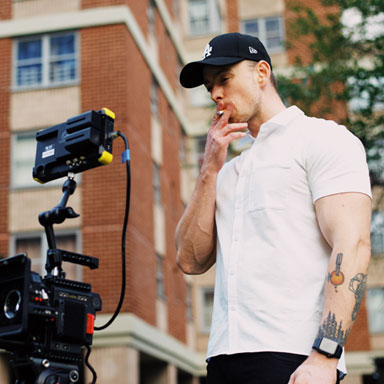Center Stage
How does an independent movie need to be reliable? The most disdained of all independent movie classifications is regularly blamed for not just messing around with reality yet additionally of being outright exhausting. Desire and win, ruin and recovery: these are the point of views and that transform inconvenient biographies into absorbable moral examples. In any case, for all their consistency, biopics aren’t without their social capacity. Indeed, even the most ordinary open up spaces for us to examine the reason why our aggregate recollections are so significantly molded by what we understand with regards to well known individuals. The gorge between what comes to the screen and what gets left out is both an issue of the structure and one of its fundamental attractions.
As though to incapacitate the wariness of an insightful crowd, strange takes on the class (like Todd Haynes’ Bob Dylan picture I’m Not There, from 2007) will more often than not make a quarrel about their tricky relationship to the real world, bringing about a deconstructed style that risks turning into its own platitude. In any case, in his 1991 magnum opus, Center Stage, Stanley Kwan turns what could undoubtedly be excused as postmodern gimmickry into something abnormal and unclassifiable, a steadily moving system that refracts pretty much every anecdotal knowledge independent movie advances.
In this independent movie presentation a pressure among presence and nonattendance is quickly evident in the initial scene, in which Kwan presents the courageous woman, Shanghai film star Ruan Lingyu (played by Maggie Cheung), through a progression of high contrast cinematography. Ruan is a youngster in this independent movie, yet what they convey isn’t her childhood but a staggering feeling of a world not comprehended by contemporary personalities. As the camera moves across the photographs’ cleaned out surfaces, Ruan’s face is scarcely discernible, transmitting a white, ghostly shine where her highlights ought to be.
Whenever Center Stage was made, a lot of Ruan’s work had been lost to time. Yet, Sinophobe cinephiles during the ’90s would have basically known her by name, and by the outrage that consumed the last long stretches of her too-short life. Grittier and less imperious than Greta Garbo or Marlene Dietrich, to whom she was as often as possible looked at, she was one of the most spellbinding screen actresses of the late quiet time, and she came to represent a rush of liberationist, proto-women’s activist energy that energized Shanghai during the ’30s. But, notwithstanding being associated with jobs in such ground breaking liberal works of art as The Goddess (1934) and New Women (1935), Ruan was done in by her, worn out sexist outrages of her character. Bits of hearsay with regards to her snares with various men turned into the background for her self destruction at the age of 24.
Center Stage limits its concentration to 1931-1935, Ruan’s pinnacle a very long time at the Lianhua Film Company, where she moved away from crude class toll to the aggressive and progressive independent movie that established her stardom. However, the independent movie shows this climb hesitantly and circularly. There’s no intelligible, thrilling development to magnificence, no display of pomp; big name isn’t sensationalized as a fallen express that twists the entertainer’s inner self. Truth is that, for a large portion of the independent movie, we’re not exactly conscious of how Ruan feels regarding what’s befalling her. Kwan and Cheung’s understanding of the person is practically hostile to the mind. Where an independent movie depends on minutes when the private self spills into public understanding, Center Stage tries not to manufacture any situation that could offer a helpful key to the soul and spirit of Ruan.
Kwan is one of the extraordinary living experts of character acting, and his other best-cherished works-the independent movie ‘Rouge’ (1987) and the strange sentiment ‘Lan Yu’ (2001) are warm-blooded by correlation. How he set off to manage this cerebral tribute to Ruan was a takeoff both for himself and for the Hong Kong independent movie industry, whose signature item at the time was high speed diversion. Center Stage’s most trying ruse is its half breed structure, which consolidates the fantastic account of a period dramatization which is unglamorous in the background independent movie chronicling the coordinated effort among Kwan and Cheung. At different focuses all through the film, the independent movie Director, and other cast are shown imagining about the misty inspirations of the genuine characters portrayed in Center Stage, upsetting our capacity to submerge ourselves in Ruan’s reality. The thick visual style adds to this weakening impact: twirling, Art Nouveau of cityscapes show up, on close investigation, turn out to be painted sceneries, suggestive of Expressionist quiet independent movies; and in one early scene, the activity of the film set is seen through the top of a glass structure, as though Ruan were a plant in a nursery.
Cheung’s ready, regularly lovely exhibition produces its own disharmony. Fans of Hong Kong film will probably know that the lead job was initially implied for pop diva Anita Mui, whose reckless persona and brushes with debate could have loaned the film an additional a level of oppositeness. (As per Kwan Mui retired from independent movie making since her ardent prodemocracy position made the prospect of working in China after the Tiananmen Square slaughter unpalatable.) Seven years into a fruitful profession, Cheung was most popular for costarring with Jackie Chan in Police Story (1985), and she’d never been given a job as baffling and intricate as this. All things considered, the crisscross between Ruan’s agitator soul and Cheung’s splendid, open-confronted attitude holds a bewildering power. Late in the film, Kwan compares Ruan’s cigarette-lighting strut in ‘The Goddess’ with Cheung’s re-making of similar independent movie; on the grounds that the impersonation isn’t completely persuading, it fills in at this point one more token of the distances of existence remaining among Kwan and Cheung and their independent movie production.
This could sound forbiddingly isolated, which might be the reason Center Stage has turned into a staple of film that educates people about its self-reflexive technique welcomes watchers to think about the subtlest changes of structure and significance, as well as the medium’s twin capacities with respect to disclosure and trickery. Yet, the independent movie is no simple scholarly exercise. For Chinese-talking watchers, it very well might be considerably more moving now than it was upon its delivery. However Center Stage isn’t unequivocally political, the possibility of a renowned Hong Kong auteur mulling over his own general public’s social connection with central area China was loaded in 1991, only a couple of years after the occasions at Tiananmen stirred up feelings of trepidation regarding what lay ahead for the British province after its looming handover to the PRC. Today, Kwan’s heartfelt implications of a common creative genealogy restricting these two international elements are covered by the existential fear of Hong Kongers who long for a separate country from China.
Center Stage likewise has a lot to tell the individuals who are less fixed on the risky advancements in the area. Few independent movies have so articulately questioned the actual underpinnings of the class: our craving for closeness with the stars and our feeling of being qualified for information on their own lives. Indeed, even as the preproduction discussions among Kwan and his cast appear as productive exploration, they actually rotate around the stuff of a tattle industry that gains by those equivalent cravings latent relics and handed down accounts that transform Ruan into a life sized model of history.
Similarly as startling is the manner by which Center Stage summons the dejection of the entertainer, who is everlastingly gotten between the enthusiastic straightforwardness her craft requests and the security she expects to safeguard those feelings. In one of the most tormenting pictures in his independent movie, Ruan is seen on a dance floor, influencing and shimmying solo in the center of a group. She has a frightful, narcotics blessed face, and through voice-over she proclaims, “I’m exceptionally cheerful.” It appears to be a favored snapshot of mental openness, one that prods us with a hint of the person’s inward life. But, as so much else in this independent movie, is a delightful falsehood.




